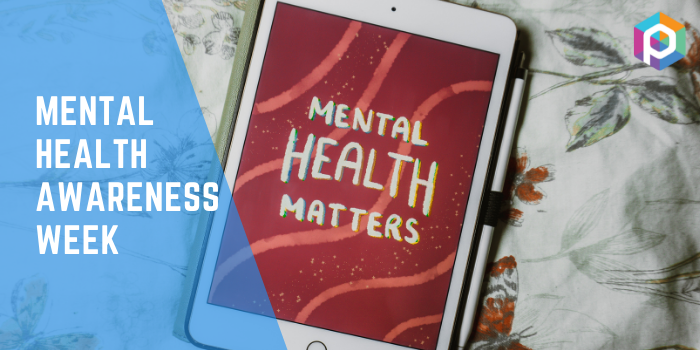Mental Health Awareness Week
|
|
|
|
Author: Samantha Stokes, HR Business Partner for PACT HR Published: 10th May 2022 Many aspects of our lives affect how we are in the workplace and the workplace can do a lot to help tackle loneliness; considering we spend approximately half of our waking hours at work per week or, on average, one third of our life in total; the workplace has a significant influence on our mental health and wellbeing. We have all become accustomed to anxiousness and dealing with uncertainty over the past couple of years due to the COVID-19 Pandemic. Just when we thought we were seeing the light at the end of the tunnel and returning to some form of normality we have the War in Ukraine, which despite the distance, is distressing for all to witness. We have financial hardship and extreme backlogs on NHS waiting lists. People are surrounded by a disproportionate amount of negative news. All of which is seriously affecting peoples’ mental health which can cause a person to become disconnected from those around them and can lead to dissociation. Poor mental health is known to influence a persons’ ability to manage their finances. With the cost of living increasing, households are facing financial hardship that is unavoidable and those already suffering from poor mental health will find themselves feeling overwhelmed and socially isolated from friends and family, further contributing to that feeling of loneliness. The connection between financial hardship and poor mental health is prominent, and even before the soaring cost of living, that we are seeing today, at least one in eight people were already living in poverty. According to the CIPD’s Financial Wellbeing and Organisational Support report published in April 2022, one in four employees said that money worries affected their ability to do their job and impacts on their overall performance and their overall attendance. Therefore, it is extremely important for employers to recognise this and do what they can to support people suffering from in-work poverty. The CIPD’s definition of in-work poverty is: “When a working person’s income, after housing costs, is less than 60% of the national average, they don’t earn enough to meet the cost of living – they are living in poverty.” Those most vulnerable to experience in-work poverty and social isolation include single parent families, those living in rented accommodation, those with three or more children in the household and those who have experienced a recent change in circumstances such as divorce or bereavement. These people make up a large proportion of the workforce and so it’s important for employers to be supportive. Employee health and wellbeing are widely used to help provided managers with information and guidance to support employees and drive business success. Employers are becoming increasingly aware of the importance of looking after both the mental and physical health of their staff but when poor mental health is directly linked to factors outside of the employer’s control then what can they do to help? It’s evident to say that employees should be receiving a fair pay and many employers are adhering to this with yearly salary reviews. However, the support an employer can provide can go much further than unsustainable salary increases, even on a very small budget. Here are just a few examples:
How can PACT HR help you?Your assigned PACT HR Business Partner can help draft a financial wellbeing policy. This can be helpful in providing managers with guidance on how to respond, where to signpost, and what tools they have at their disposal. For more info on how we can best support you, please contact the PACT HR helpdesk on 01274 436644 or email us at info@pact-hr.co.uk or more details. Last Updated: 10th May 2022 |
